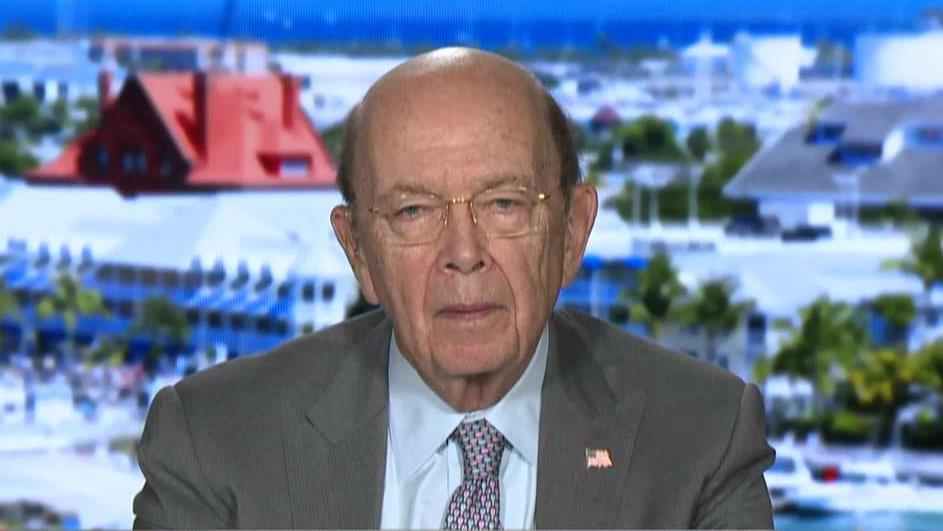Trump’s tariff on steel, aluminum defended by Wilbur Ross as pro-jobs
Commerce Secretary Wilbur Ross defended President Trump’s plan to impose U.S. tariffs on steel and aluminum, dismissing the stock sell-off triggered on Thursday by concern over a trade war as no big deal.
“The people are exaggerating it considerably,” Ross told FOX Business’ Stuart Varney. “But you’ve got to look at the job creation and the impact on American employees. American employees have borne the brunt of all the imported steel and aluminum that’s been coming in. Corporate America might complain, but the president is taking up the banner of Mr. and Mrs. America.”
U.S. stocks dropped 420 points on Thursday, but the S&P 500 and the Nasdaq Composite attempted a comeback Friday afternoon, curbing a good portion of morning losses. The Dow Jones Industrial Average remained lower, as investors weighed whether the tariffs would cause a tit-for-tat retaliation from other countries.
On social media Friday morning, the president appeared to welcome a trade war, something Republican and Democratic leaders have cautioned could spur a costly -- and job-killing -- trade war with China, the world's second-largest economy.
“When a country (USA) is losing many billions of dollars on trade with virtually every country it does business with, trade wars are good, and easy to win. Example, when we are down $100 billion with a certain country and they get cute, don’t trade anymore-we win big. It’s easy!” Trump wrote on Twitter.
But Trump also argued that the tariffs – 25% on steel and 10% on aluminum – would protect U.S. companies and allow for the creation of new manufacturing plants – one of his main promises during the 2016 presidential campaign. The president made the announcement after meeting with representatives from the steel industry and promised that the tariffs would provide protection for U.S. producers “for a long time.”
Critics, however, warn that tariffs will raise the cost of steel and aluminum and make products such as automobiles and canned beer more expensive. But Ross said consumers likely wouldn’t notice the price increases, using a can of Campbell’s Soup to defend the tariff.
“Let’s put it in perspective,” he said. “I just bought a can of Campbell’s soup today at the Seven Eleven. It was $1.99 for the can. There’s about 10 cents worth of tin plate steel in this can. So if it goes up 25%, that’s a tiny fraction of one penny. That’s not a noticeable thing.”




















